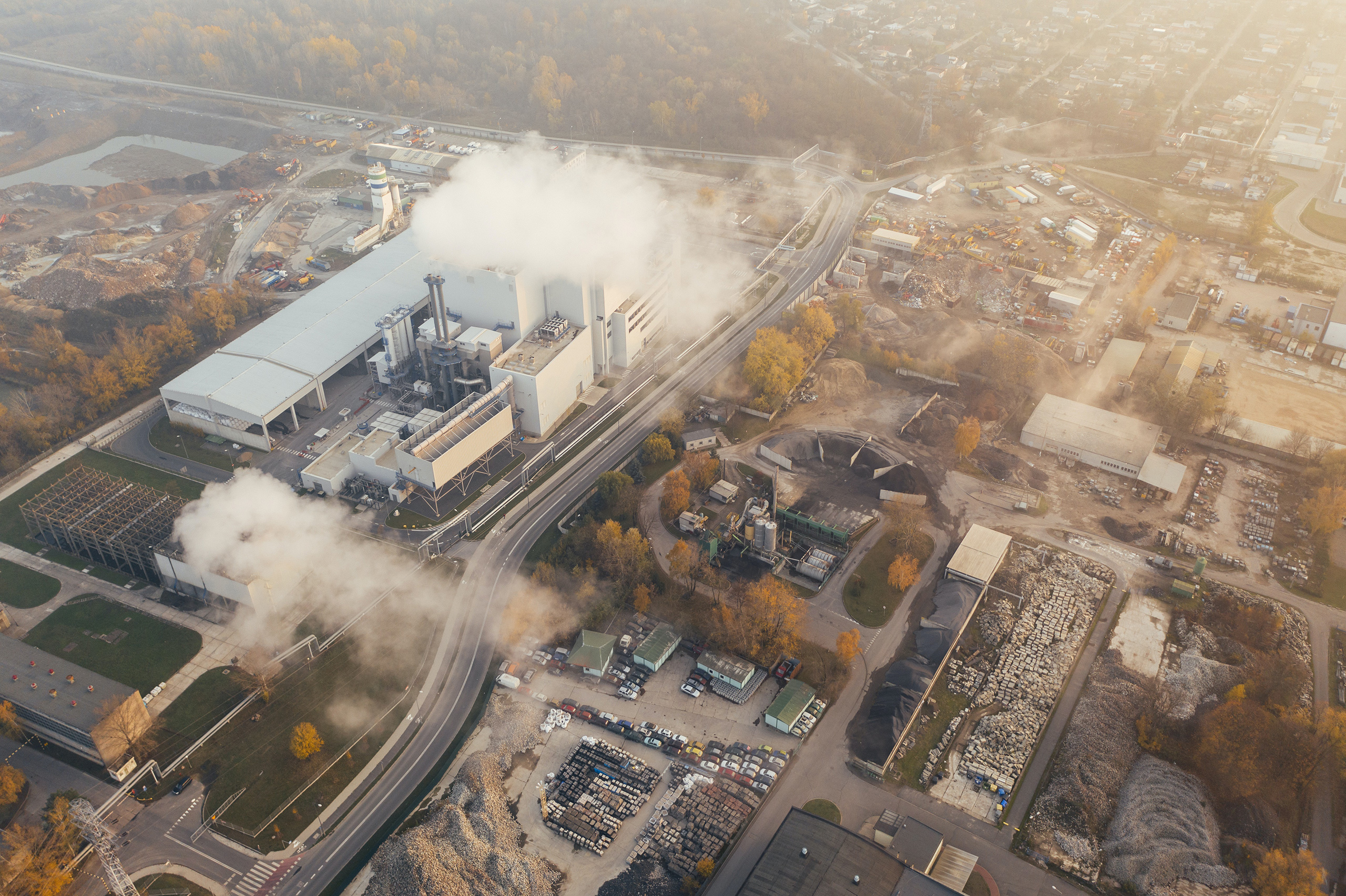OPINIONS
Anna Kynthia Bousdoukou
The uncertain future that anthropogenic climate change has in store for us

October 1 2021
Until about the mid-20th century, there was no question of human intervention in terms of determining the climate of our planet. In fact, the prevalent view in our country was that of Aeginitis, Mariolopoulos and other historical figures of Greek atmospheric science, according to whom the climate of Greece remained stable from classical times until the 20th century. This view was suggested in response to German historian Fallmerayer, who supported that the climate of Greece had become more humid and warmer than in antiquity and that was why Greeks did not possess the same intellectual qualities that their ancient ancestors did. Of course, as science has proven, both views were false. On his part, Fallmerayer presented this anti-Hellenic position for his own reasons, but the Greek climatologists also used an argument that very quickly collapsed, especially after the 1970s. Anthropogenic intervention in climate change followed dramatic changes, which also occurred during the classical period. The first 30 years AD were characterized by severe drought but, during the Byzantine period and especially after the fall of the empire in 1453, extremely low temperatures spread throughout Europe and, apparently, throughout the entire northern hemisphere. This period was called the “Little Ice Age,” and lasted from the end of the 15th century until the mid-19th century. The average temperature, as we have shown in previous publications, was less than 1.5 °C below the average temperature of the period between 1960 and 1990, which is considered a 30-year period representative of the average climate state. These 1.5 °C were very important in terms of statistics, but also in terms of essence. The "Little Ice Age" is clearly visible in all the paintings of the Flemish school depicting canals and rivers, where everything is frozen. The same thing happened with the Thames. There are lithographs from the 16th and especially the 17th century that depict the river Thames as frozen. There are descriptions of clothing and even of the way soldiers and other officials dressed, which was completely different from what would be tolerated today as clothing in terms of the wearer’s thermal comfort.
The 20th century was essentially a turning point in innovation, technology, the development of automation as well as the increase in the rate of the production and efficiency of common goods. For all of these reasons, it was called the Industrial Revolution era. Acetylene lighting on public roads was replaced by incandescent lamps, the internal combustion engine enabled, not only rapid transport, but also rapid automation in production, agriculture and animal husbandry and generally in all human activities of production. This revolution was mainly based on the burning of fossil fuels, first coal and then coal and oil, to replace almost all mechanisms with internal combustion engines using liquid diesel fuel and, most recently, natural gas. The burning of fossil fuels inevitably leads to the release and emission of gases such as carbon dioxide, which have the property of preventing the planet from atmospheric cooling. There are some atmospheric windows through which the planet is cooled, but even these, through human activities, have slowly, one by one, begun to close. As a result, in the last 40 years, we have seen an increase in the average global temperature which, overall, dating back to our earliest measurements, has exceeded 1 °C. This means that, within 100 years, the average temperature increased by more than 1 °C and, as most advanced models show, this was the result of human intervention and not a natural phenomenon that many consider to occur as a cyclical climate change with periods of about 100 years; such periods do not exist. Simply, those who held these erroneous views realized that geological periods of major changes on our planet last for thousands of years. It was therefore proven that human intervention, especially in the last 3 decades, was both unexpected in magnitude and unique in the history of the Earth’s climate, as we have known it for at least the last few tens of thousands of years that we have secure evidence of the prevailing climate of various geological eras.
We find ourselves within a dangerous “parenthesis,” which may lead to an increase that will not only exceed 1 °C, but even 2, 3 or even 4 °C in the coming decades, if no action is taken.
The global measures that have been proposed, as we know, are the Paris Agreement and the recent Green Deal, as well as the statements and expressed willingness of the US to return to the climate negotiating table. The issue is complex and even small countries like ours have already started setting a good example. Our country followed, co-signed and started to implement what is required by these international treaties and has even already committed to the Greek Prime Minister’s proposal for complete delignitization within the next few years. Of course, the transition to the so-called zero carbon footprint is a global issue, because it is very difficult to do this on a global scale due to the huge mosaic of different economic levels that exist across the planet. There is an incredible inequality of GDP distribution on the Earth today among the more than two hundred UN member countries. This uneven distribution shows that the United Nations appear to be united only in terms of moral values, but certainly not in terms of GDP. The same is true of the availability of natural resources. The most important commodity that should be available to the entire planet is drinking water. There are more than 1 billion people who do not even have access to clean drinking water today, in the second decade of the 21st century. It is unacceptable to have such great differences, such terrible discrimination of human suffering, poverty and inequality, not only in terms of the physical goods available to every person, every inhabitant of the Earth, but even in the use of simple high-tech applications, such as the Covid-19 vaccine and many other vaccines that have eliminated the major pandemics that humanity has experienced in the past. Climate change is the tip of the iceberg in the self-destructive path that humanity has followed through excessive wealth and excessive indifference towards our fellow human beings (our fellow human beings may be on the other side of the planet, but the air they breathe is the same air that we breathe, thousands of miles away). We are called upon to share the air, the water and the natural resources that nature so generously provides. If we manage them with today’s knowledge, this could lead to the elimination of the terrible misery that is unfortunately swept under some very dirty carpets, which have nothing to do with the societies envisioned, not only by our ancient ancestors, but also by the ancestors of the Chinese, the Indians and the Egyptians. Of course, the problems will be solved indirectly for both the haves and the have-nots. The rest will have to wait in line, I don’t know for how long, but we should all realize that we are not alone on the planet. A passenger who boards a plane with Covid-19 variants from a country in Africa can infect dozens or even hundreds of those they will come into contact with if they are not vaccinated. The death of children, from starvation or bullets or any other result of the reckless exploitation of natural resources and fossil fuels, is a disgrace for the 21st century society. Perhaps this will be the century, not of progress, but of the beginning of the social self-destruction of the entire planet, whose population is doubling every 40 years. There are 7.5 billion of us and in 2060 there will be 15 billion.
Returning to the issue of anthropogenic climate change, the technology exists. The issue is that those who have become addicted to the profits of “black gold” and other fossil fuels must switch to exploiting natural resources (solar, wind, geothermal, etc.) that provide sufficient energy to substitute for human needs both in transportation and production and in daily life. The issue is too vast, and those who are pulling the strings are so dispersed, so fragmented, that there is always the intrinsic fear that with all this oversupply of climate scientists, nature scholars and others interested in the transition to the new regime of a carbon-free society, we will even be at risk of exploitation by both politicians and “well-meaning” investors, by people who will try to build things, not in order to save the planet, but for their own benefit.
The road ahead will be long and difficult. Fortunately, Nature always reminds us, through its extreme behavior, that we have crossed certain limits and, alas, as I have said countless times, when the extreme becomes normalized, then we will be unable to return to the previous state of our planet. I sincerely hope we do not reach that point. I hope that humanity will prevail, through proper Education, which will always be, at least in my opinion, the great global challenge, as important as is drinking water to all the unfortunate people who do not have access to it today.
Christos Zerefos participated in the discussion entitled "Climate Change - Part 2"


